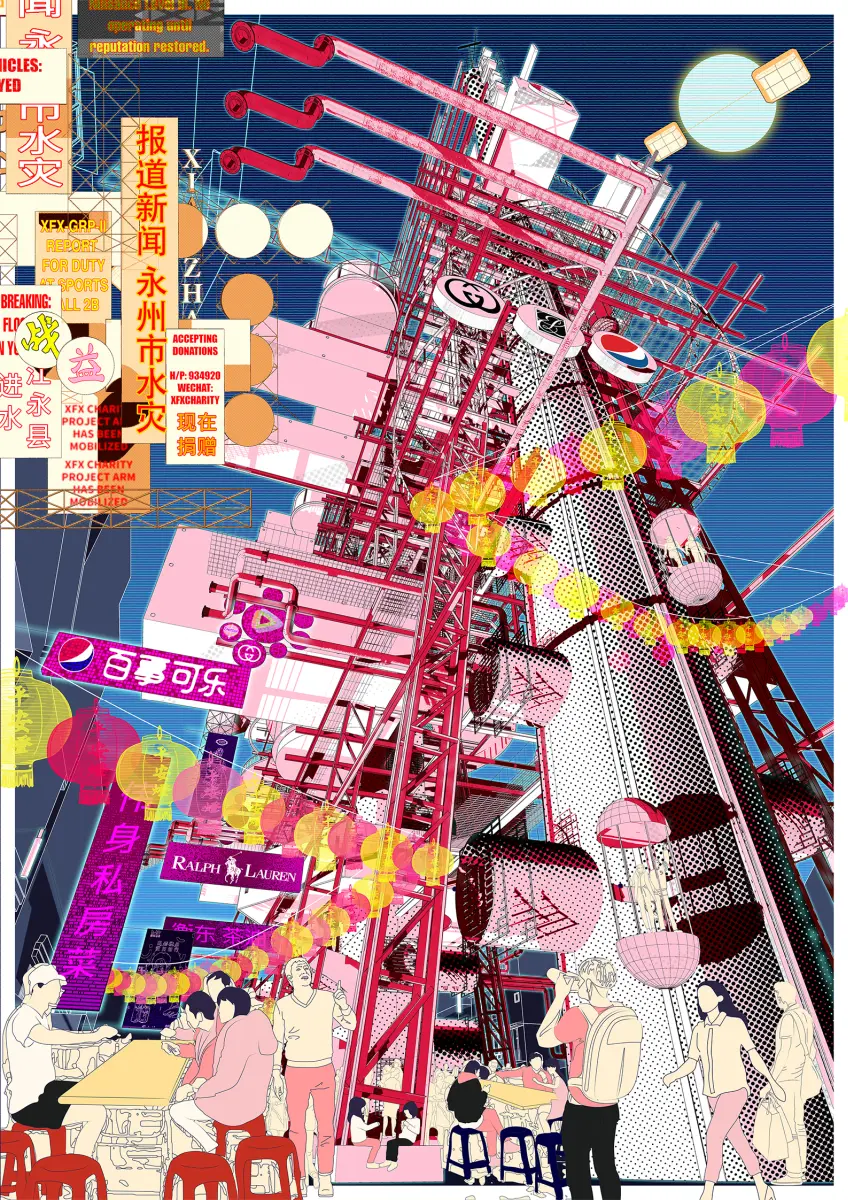
The Fěn-Quān Coalition: For Community, For Country
BY Aidah Razali
SUPERVISED BY Adj. Assoc. Prof. Peter Sim
STUDIO THEME POSSIBLE WORLDS: AN ARCHITECTURE OF SIMULTANEOUS TEMPORALITIES
Abstract
The Fěn-Quān (lit: “fan circle”) of Chinese celebrity culture are highly organized fanbases with enough power to mobilise large masses. In recent decades, due to social media and rising affluence, their influence in Chinese society has grown exponentially, creating friction with the highly authoritarian ruling power of the Chinese Communist Party (CCP).
This thesis attempts to reconcile the seemingly disparate interests of the two bodies to explore how they might work in tandem for the greater good of all. The interventions facilitate the generation of compassionate deeds and advocates the CCP’s climate change campaign, while capitalizing on the Fěn-Quān’s love and devotion to their celebrities.
Supervisor Comments
Celebrity and Communism Celebrities have real power in China. They fuel economies, support livelihoods, define values, and instigate calls to action. Arguably, the biggest celebrities have as much influence over their fans’ thoughts and actions, as do the Chinese authorities. Each fan base may be likened to a “Peoples’ Army”; one that is organised, coordinated, and well financed. They act in unison in support of their chosen superstar: from real and virtual public shows of devotion, to collectively mobilising to help celebrity endorsed social causes. This project is a challenging exploration into how the contradictory values of Celebrity and Communism may give rise to interesting power relations and in turn new architectural typologies. What new spatial practices and structures could come from this tenuous but mutually beneficial, power struggle?
- Adj. Assoc. Prof. Peter Sim